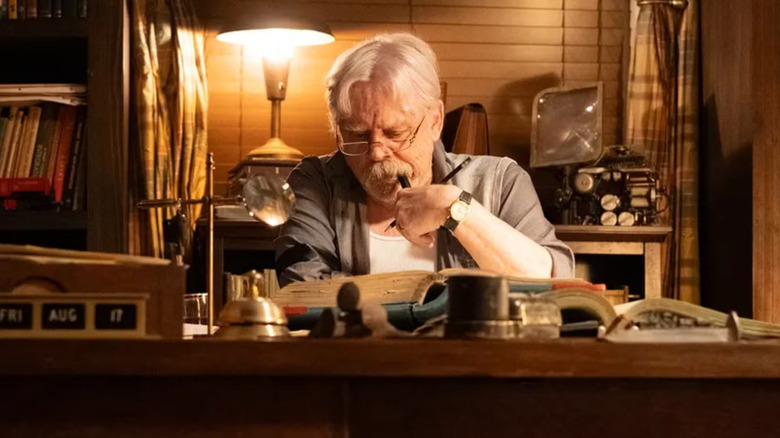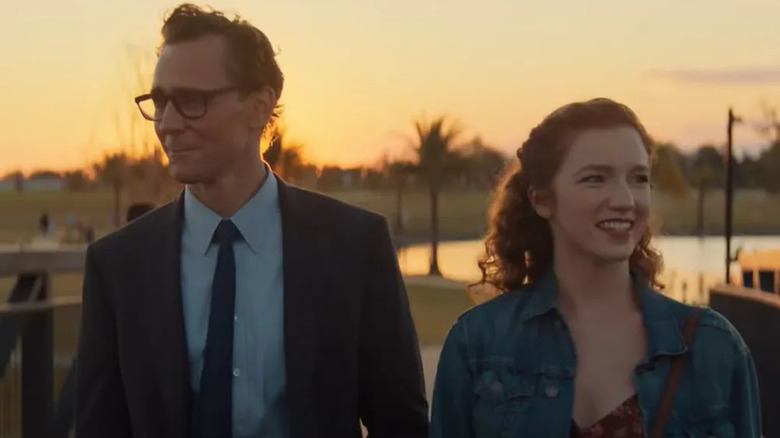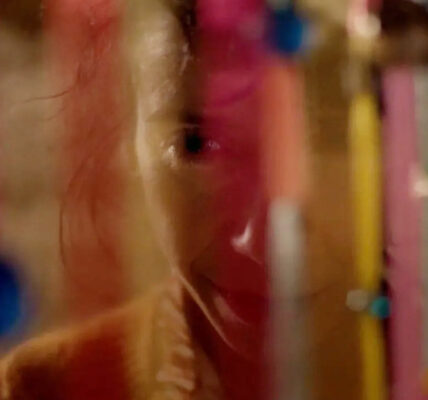There is a decline against a recent tendency nicknamed “Hopcore”, a cultural meme seen on social media platforms (mainly Tik Tok) which accentuates the positive. The reasons for this reaction are several, of course. Those who consider themselves realistic believe that such a creeping positivity can be toxic. This certainly does not help that so many popular feelings concerning the interconnectivity of humanity have been reduced to sentences printed on pillows and door carpets that you can buy from Target. At a time when so many people think that to be positive is to be deliberately ignorant, the idea that things can (or even could) work well like an empty platitude.
No work of art can transform a pessimist into an optimistic or vice versa, but the power of art can certainly approach both the macro and the microphone in order to reconcile them. Movies, As Roger Ebert said one dayare empathy machines, and as much as they can work as such so that the public learns to sympathize with other people than themselves, cinema can also return this empathy to the public. “The life of Chuck,” The latest filmmaker Mike Flanagan, is imbued with empathy for humanity, a quality that was a must in Flanagan’s entire filmography (yes, Understands his horror films and his programs). However, it is not a film that seeks to appease people with an empty feeling, and it is not a film marrying the simple heroism of the oppressed. It’s not Hopcore, and it’s not Frank Capra, in other words.
Instead, “The Life of Chuck” is one of the most insightful and moving philosophical films ever made, a film as much Kierkegaard as king. It is in fact that Stephen King does Kierkegaard, given that his unique structure (which recalls a film by Christopher Nolan) is adapted verbatim from the author’s news. That said, Flanagan and its overall distribution make the film their own, telling a story that seeks to balance the macro with the microphone and act as a cinematographic equivalent to the idiom of a glass which is half full or half empty.
Chuck’s life is a furtive anthology
A large part of the magic that constitutes “the life of Chuck” lies in the way history is structured and told, so I will not spoil too. It is enough to say that, like the novel, the film is told in three chapters which occur in the reverse chronological order, and the three concern Charles “Chuck” Krantz, an adorable but average man who works as an accountant.
In the first chapter (which is really the third chapter, if you follow me), Chuck (played by Tom Hiddleston) is starting to appear on various display panels and advertisements while the world apparently heads for Apocalypse, a mystery that the Marty school (Chiwetel Ejiofor) and the nurse Congelicia (Karen Gillan) are trying to find a response. In the second chapter, Chuck falls on a drummer (Taylor Gordon) who was in the street whose music inspires him to drop and dance, an improvised moment when he is joined by a recently Jilée girl (Annalize Basso). Then, in the last chapter (which is the first), Chuck goes from a young boy to a teenager (played by Cody Flanagan, Benjamin Pajak and finally Jacob Tremblay), learning delicate lessons on life along the way. Among these lessons, there is very well the grandfather of Chuck, Albie (Mark Hamill), warning him never entering the attic, because he could have the power to describe the death of someone close to you, including yourself.
As you can see, even if “the life of Chuck” is ultimately a parable with the same character in his center, she works more like an anthology film. Flanagan, being a veteran of horror cinema, is undoubtedly aware of the tradition of Portmanteau films in the genre, and although he did not necessarily exchange his style for each segment, he certainly varies the tone with a pleasant variety. The first segment is imbued with crawling dread, the second is soft and the third mixes tenderness in adulthood with supernatural wonder, a combination of Spielberg or Serling. There is something in attraction “Twilight zone”-How about the film overall, with the romanticism of the blue necklace of Flanagan transmuting in the poetry of the ordinary man.
Although each segment works perfectly as its own individual short film, the combination of the three together – once in the good order by the spectator, because the film does not hold anyone in this way – has a cumulative effect, making the film the second film to be released on June 6 of this year which pushes the film in anthology (the other being to be forward (the other being forward (being being being being “Predator: killers killer”).
Flanagan keeps a very stable hand on the wheel, which allows the alienation to slip
The ambition exposed in “The Life of Chuck” never feels too heavy, but it still requires Flanagan to put on a needle with delicacy. He has already done so, as with “Oculus” and his parallel chronologies, and in “Doctor Sleep”, which apparently made the impossible in his Reconcile disparate visions of “The Shining” by King and Stanley Kubrick. Despite the opposite structure and several mysteries that were in “Chuck”, Flanagan seems impracticable. Even if the film presents the dulcet tones of Nick Offerman as a folk narrator and omniscient, there is never an attempt to spell in a blatant way what is happening and why. Flanagan does not have to do so; He just plays with the public, giving them all the answers, even if they have to wait a bit to be able to gather the pieces of the puzzle themselves.
Flanagan’s secret weapon, as always, is its seriousness, which is a quality that we do not see much in the cinema these days, not to mention American-public cinema. This is partly due to the evolution of times, of course: if a film like “Field of Dreams” from 1989 Were released today, his many charms and hearts would very easily be drowned in a sea of speeches, both because of the toxicity of social media and the cloud of poisoning at the irony that we have been breathed in almost the beginning of the century. Although he can certainly be accused of having worn his heart on his round (and of giving himself and engaging in his actors to the monologue), Flanagan understands in an innovative way for what type of audience he makes a film, and he never lets “throw a tip in total cynicism or saccharin. Thus, one could say that “chuck” linger too much in the middle for too long, be too soft for some and too off -putting for the others. The film is equally intellectual and emotional, something that continues to pay dividends after its end (or during backhands), but which has the potential to make the film alienating while it is disintegrating. Flanagan took the risk of making his cinematographic glass half full (or half empty) of water, and as such, his response to the film depends a little more than usual on what you bring there.
Chuck’s life is proof that Flanagan and King, like anyone, contain multitudes
For anyone knowing the work of Flanagan and King, “The Life of Chuck” should not be a huge surprise. Of course, the two men are more famous for their works of terror, but the heart they have demonstrated in works like “The Haunting of Hill House”, “Midnight Mass”, “The Shawshank Redemption”, “Stand by Me” and others mean that their scope is not a newly discovered thing. However, to someone like me, who is a fan of the whole life of the two artists, there was still a revelation in “Chuck”. For the first segment of the film, Flanagan aroused a kind of fear in me that I did not know that I had, while the structure of history showed me that King had more inventiveness than I may have given him credit.
The most convincing aspect of “the life of Chuck” is the way he deepens and reflects so many themes and concepts found in cinema and in real life. He tells a story of “amor fato” that looks like a skewer nicer in the way the idea can be used in a horror context, As it was in “Nosferatu” last winter. This testifies to the loss as something both capital and ordinary, because of course, it is precisely what loss is. I lost my grandmother earlier this year; The film is dedicated to Fire Scott WamplerA man I knew personally, if only as a knowledge. However, where some treat the loss and spectrum of death as a lamentable emptiness, it may also seem that these loved ones have never completely left, that their lives have had variable impacts, and the size has little importance. This leads to a warm feeling of acceptance, and this is the conclusion to which “Chuck” arrives, whether it is death or how we lived his life. It is not to fear so horrible, it should not be adopted so beautiful, it’s right. Regarding “the life of Chuck” being the most thoughtful, the most empathetic and the most tender film of the year, it’s right.
/ Film assessment: 9 out of 10
“The Life of Chuck” opens in some rooms on June 6, 2025 and wide on June 13, 2025.









